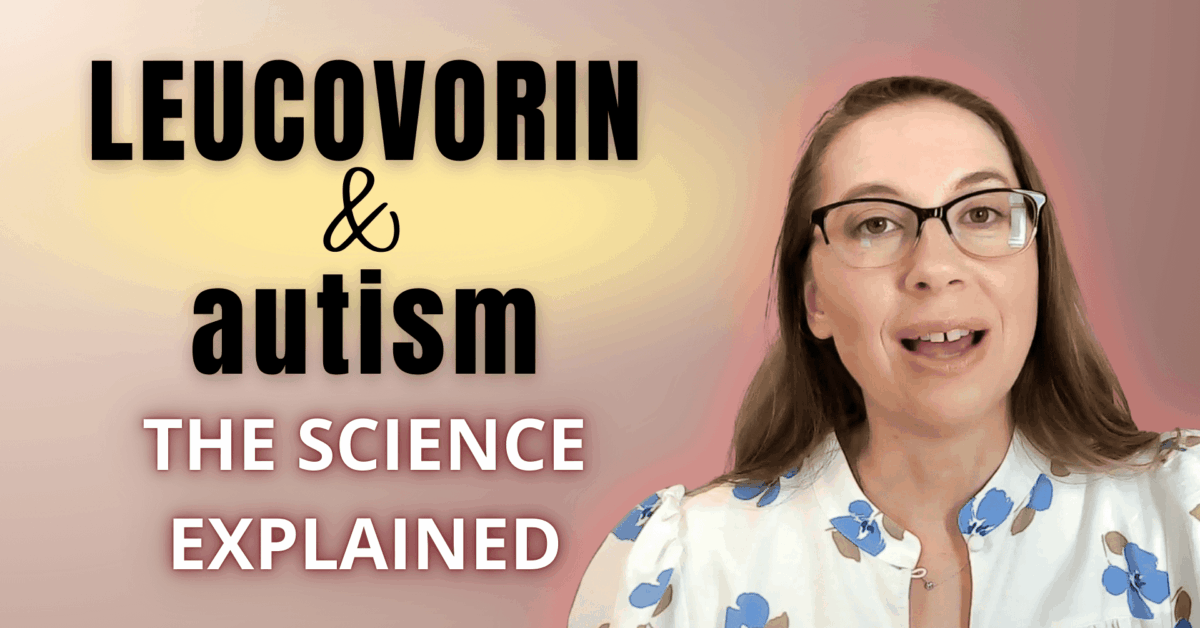Does your child have autism? Are you concerned about their speech? This post is the top five things that you should know about leucovorin and autism.
Why is leucovorin such a hot topic?
Speech! There are many kids out there who are regaining speech when their parents test for antibodies and then treat them with leucovorin.
FRAT test
First thing, do a FRAT test. The most common cause of cerebral folate deficiency is serum autoantibodies of the blocking type directed against folate receptor alpha. Think of these antibodies as troublemakers in the brain. If you do a FRAT test and it comes back positive, the standard next step is a leucovorin prescription.
FOLR1 mutations
If you do a FRAT test and it comes back negative, and speech is still an issue, especially if there are seizures, the next step would be to explore FOLR1 mutations, mitochondrial disorders, and inborn errors affecting folate metabolism. I guide parents through all of this science, and I can tell you from experience that even if the FRAT comes back negative, speech might still improve or even explode with increasing cerebral folate. Not just folate, cerebral folate. It is noted that the amount of these antibodies can vary over time, so the FRAT test might need to be done more than once.
Infantile onset CFDS
Infantile onset CFD syndrome manifests about 4-6 months after birth, and early diagnosis is challenging. Visual and progressive hearing disturbances usually happen with brain MRI, showing signs of delayed myelination and demyelination. Another CFD phenotype has been seen after the age of one. However, the cognitive ability seems fine in contrast to cognitive issues observed in infantile-onset CFD.
CFDS & Autism
The third recognized CFD syndrome is autism. How common are these troublemakers in the brain? The prevalence of blocking FR autoantibodies was found to be less than 2% in individuals under 16 years old, increasing to about 4% to 7% in healthy adult women in Spain, 9% to 13% in healthy adult women in Ireland, and 10% to 15% in the adult US population. Research on the autism population in the US has found about 70% of kids with autism have these autoantibodies that are troublemakers in the brain.




